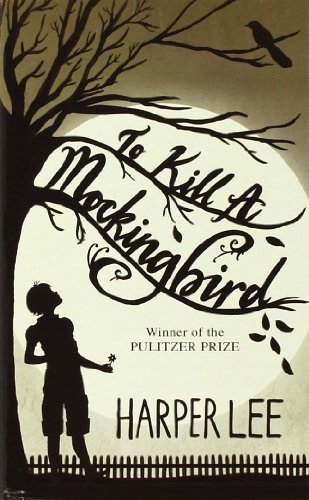All Nonfiction
- Bullying
- Books
- Academic
- Author Interviews
- Celebrity interviews
- College Articles
- College Essays
- Educator of the Year
- Heroes
- Interviews
- Memoir
- Personal Experience
- Sports
- Travel & Culture
All Opinions
- Bullying
- Current Events / Politics
- Discrimination
- Drugs / Alcohol / Smoking
- Entertainment / Celebrities
- Environment
- Love / Relationships
- Movies / Music / TV
- Pop Culture / Trends
- School / College
- Social Issues / Civics
- Spirituality / Religion
- Sports / Hobbies
All Hot Topics
- Bullying
- Community Service
- Environment
- Health
- Letters to the Editor
- Pride & Prejudice
- What Matters
- Back
Summer Guide
- Program Links
- Program Reviews
- Back
College Guide
- College Links
- College Reviews
- College Essays
- College Articles
- Back
To Kill a Mockingbird by Harper Lee
To Kill a Mockingbird, largely regarded as one of the all-time best novels, is well known for its proclamations of equality and justice in the bitter and divided south in the 1930s. However, its main message, one of the inner goodness of humanity, is timeless.
To Kill a Mockingbird tells a heavy story of racism and injustice through the innocent and unsuspecting eyes of a lawyer’s daughter, Jean Louise “Scout” Finch. From the opening sentence, you are pulled into the bucolic, far from idyllic childhood of Scout and her brother Jem in the deep south during the Great Depression. Poverty, injustice, and segregation define their daily lives, but Scout and Jem spend their days playing make-believe in the yard and trying to catch a glimpse of Boo Radley, their mysterious, reclusive neighbor. Their father, Atticus Finch, is an epitome of honor, integrity, and sagacity and teaches his children to respect all, judge no one, and live according to one’s principles.
When Atticus takes on the case of Tom Robinson, a black man wrongfully accused of raping a white girl, everything changes for Scout and Jem. Barely nine and thirteen, they have to explore questions of law and justice, social order and “background”. You are taken on a journey with them, as they discover what it means to be white and why that makes any difference at all. The harrowing, heart-wrenching courtroom scenes and that long Halloween night will keep you glued to the page. In the end, the reader and Scout alike realize just what Atticus has been trying to tell them all along. You can’t judge anyone until you’ve stood in his skin and walked around in it.
Never have man’s cruelty and a child’s innocence been juxtaposed so poignantly and beautifully than in To Kill a Mockingbird. A child is not engrained with prejudice. His instinct is to love, not to hate. Jem and Scout struggle to understand the complex class system in the South during the Depression. Why isn’t there just “one kind of folks”? What is background and why does it make all the difference? In a defining scene of the novel, they learn that the people with true background are the “handful of people… who say that fair play is not marked White Only… who say a fair trial is for everybody, not just us… with enough humility to think, when they look at a Negro, there but for the Lord’s kindness am I.”
Ultimately, the heart of the novel is in its classic title. Destroying something that is innocent, like a mockingbird, is the greatest sin. Boo Radley, Tom Robinson, Jem, and Scout are innocent and good at heart, and unprepared for the evil they encounter. Jem and Scout, after witnessing the greatest evils man have to offer, lose their innocence, but not their purity of heart. In the last scene of the novel, as Atticus puts Scout to bed, a simple bedtime story underscores the novel’s message of the inherent goodness of humanity.
“When they finally saw him, why he hadn’t done any of those things, Atticus, he was real nice.”
And how does Atticus reply?
“Most people are, Scout, when you finally see them.”
Yes, most people are, when you finally see them. After reading To Kill a Mockingbird, you will know how to open your eyes and look.
Similar Articles
JOIN THE DISCUSSION
This article has 2 comments.

15 articles 1 photo 5 comments
Favorite Quote:
Do I not destroy my enemies when I make them my friends?-Abraham Lincoln<br /> For to be free is not merely to cast off one's chains, but to live in a way that enhances the lives of others. -Nelson Mandela<br /> Forgiveness is the attribute of the strong. -Gandhi